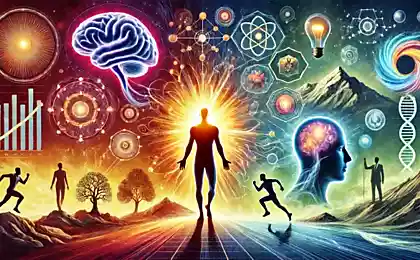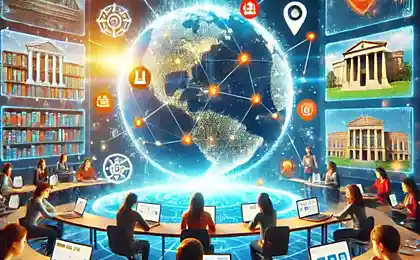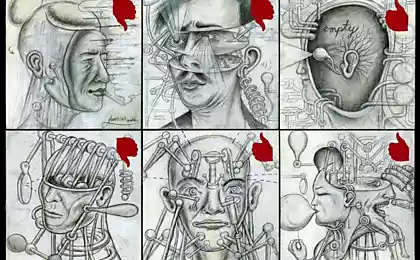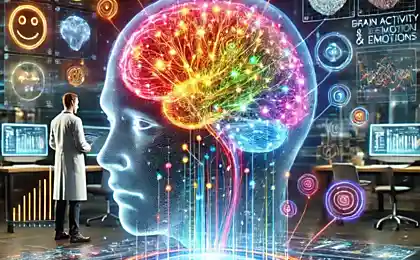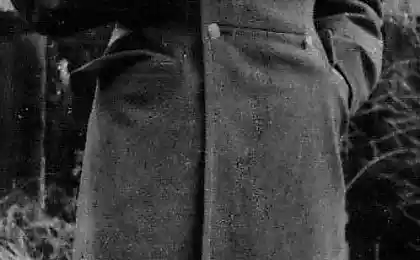235
People with superpowers: 5 stories about the real superheroes who live among us

Superheroes are usually associated with comics and movies, but the world is full of real people with astounding abilities that challenge scientific ideas about the capabilities of the human body and mind. In this article, we will talk about five unique personalities whose abilities make you think about the limits of human potential.
Amazing real cases of unique abilities
1. Wim Hof, "The Iceman"

Who is he? Wim Hof of the Netherlands is known for his amazing ability to withstand extremely low temperatures. He set many world records, including running a half marathon behind the Arctic Circle barefoot and immersing in icy water for a long time.
His ability: Wim claims to be able to control his autonomic nervous system and immune response with special breathing techniques and meditation known as the Wim Hof Method.
Scientific research: Scientists were interested in his abilities and conducted a number of studies. In 2014, the journal Proceedings of the National Academy of Sciences published an article describing experiments involving Wim Hof. The results showed that his method does indeed affect the immune system, something previously thought impossible.
Interview: "I want to show people that we are capable of more than we think," Wim says. “My method is simple and accessible to everyone. It helps to strengthen health and spirit. ?
2. Daniel Tammet is a human computer

Who is he? Daniel Tammet has unique mathematical and linguistic abilities. He can perform complex calculations in his mind and learn Icelandic in a week.
His ability: Daniel has savant syndrome and synesthesia, a neurological phenomenon in which stimulation of one sensory or cognitive pathway leads to involuntary experiences in another pathway. For him, numbers have colors, shapes and emotions.
Scientific research: His brain was studied by neuroscientists, trying to understand the nature of his abilities. Studies have shown unusual connections between different areas of the brain, which may explain its unique skills.
Interview: "For me, numbers are like friends," Daniel explains. “They have their own personalities and stories. Mathematics is not just numbers, it is the language of the universe. ?
3. Stephen Wiltshire - human camera

Who is he? Stephen Wiltshire is an artist with a phenomenal photographic memory. He can paint complex cityscapes after just looking at them.
His ability: After a short helicopter flight over the city, Stephen is able to reproduce it to the smallest detail, including the number of windows in the buildings and the location of the streets.
Scientific research: His abilities attracted the attention of psychologists and neurologists. Studies show that Stephen has a special development of brain regions responsible for visual memory and spatial perception.
Interview: "Drawing is my way of communicating with the world," says Stephen. “I see beauty in detail and I want to share it with others. ?
4. Issao Machii is the samurai of our time

Who is he? Japanese swordsman Issao Machii has incredible speed and precision. He can cut a paintball bullet from a pistol or even a flying piece of plastic.
His ability: Its reflexes and coordination are so advanced that it can respond to objects moving at speeds of over 700 km/h.
Scientific research: Scientists studied his brain and found that his sensory system and motor skills were functioning at unusually high levels. His brain predicts movements before they happen.
Interview: "It's not magic, it's the result of years of practice and discipline," Issao explains. “I strive for perfection in every movement. ?
5. Ben Underwood is a boy with echolocation

Who is he? American Ben Underwood lost his sight at the age of three due to cancer, but learned to navigate through space using echolocation - like dolphins and bats.
His ability: By making clicking sounds with his tongue, Ben could “see” the world around him, determining the location of objects from the reflected sound. He rode his bike, played basketball and lived almost like a normal child.
Scientific research: His abilities interested neuroscientists, who found that his brain adapted and used sound signals to create visual images.
Interview: “I don’t consider myself blind,” Ben said. "I just see things differently."
Scientific studies of phenomena
Scientists around the world are trying to understand the nature of these unique abilities. Research shows that the human brain and body have enormous potential for adaptation and development.
- Neuroplasticity: The brain is able to change its structures and functions in response to new challenges and learning. This explains how people who have lost one of their senses can enhance others.
- Genetic factors: Some abilities may be associated with rare genetic mutations or features that are not yet fully understood.
- Practice and discipline: In many cases, superpowers are the result of years of training and dedication.
Interviews with people with superhuman skills
Talking to these people shows that they don’t see themselves as special. Many are eager to share their skills and inspire others to develop their own potential.
Wim Hof: “Everyone can achieve what I have done. It is a matter of faith and hard work. ?
Daniel Tammett: “I want to show that difference is not a disadvantage but an advantage. Our unique traits make us special. ?
Steven Wiltshire: “The world is full of beauty, and if you look closely you will see wonders all around you. ?
Conclusion
Their stories remind us of the limitless possibilities of the human mind and body. Maybe we all have talents we don’t even know we have. Studying and understanding these phenomena not only broadens scientific horizons, but also inspires us to strive for self-improvement.
If you feel unusual abilities or just want to develop your potential, don’t be afraid to meet the unknown. The world is full of miracles, and perhaps one of them is you.
Hitler's secret collection: 10 most mysterious artifacts that have not yet been found
Unsolved secrets of the Mariana Trench: What is hiding the deepest place on the planet?


